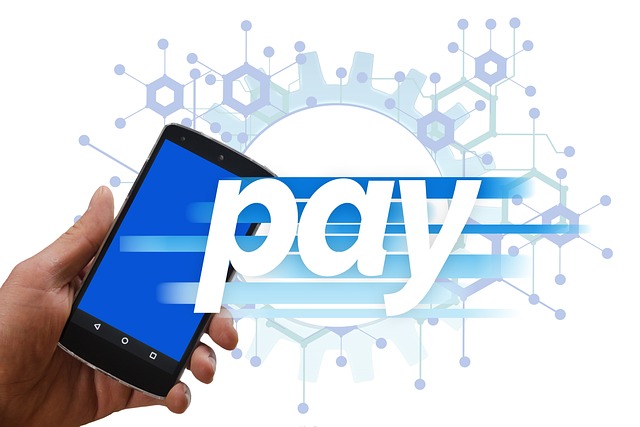Academic researchers involved in e-commerce transactions need robust security measures to protect sensitive data. Private Internet Access (PIA) is a reliable VPN service that offers strong encryption and IP address masking, creating a secure tunnel for online activities. It's particularly beneficial when sharing financial information like credit card details or personal identifiers during purchases, as it ensures confidentiality and integrity of the transaction. PIA's no-logs policy further protects users' privacy by not recording browsing activities, which is crucial for maintaining the confidentiality of e-commerce transactions. For researchers handling proprietary data, PIA provides a secure online environment for conducting e-commerce transactions, safeguarding their personal and professional information. With its commitment to privacy and security, PIA emerges as an essential tool for those seeking secure online transactions for e-commerce buyers, emphasizing the importance of protecting sensitive e-commerce data to ensure the integrity and reliability of research findings in this domain.
title: “Secure Online Transactions for E-commerce Buyers: A Guide for Academic Researchers Using Private Internet Access”
Academic researchers delving into e-commerce transactions must navigate a complex web of data privacy and security concerns. With the rise of digital marketplaces, ensuring secure online transactions has become paramount. This article elucidates how Private Internet Access (PIA) serves as a robust tool for safeguarding e-commerce activities. It emphasizes encryption’s role in securing online commerce and the criticality of no logs policies for buyer anonymity. Furthermore, it explores PIA’s contribution to enhancing data privacy and security for researchers conducting e-commerce studies, thereby providing a comprehensive framework for secure online transactions in academic research contexts.
- Leveraging Private Internet Access to Safeguard E-commerce Transactions
- Understanding Encryption and Its Role in Secure Online Commerce with PIA
- The Importance of No Logs Policies for Maintaining Buyer Anonymity in E-commerce
- How Private Internet Access Enhances Data Privacy and Security for Academic Researchers Engaged in E-commerce Studies
Leveraging Private Internet Access to Safeguard E-commerce Transactions

When conducting e-commerce transactions, academic researchers must prioritize the security of their online activities to protect sensitive data. Private Internet Access (PIA) serves as a robust solution for ensuring secure online transactions for e-commerce buyers. By encrypting internet traffic and masking IP addresses, PIA provides a secure tunnel between the user and the internet, effectively shielding e-commerce interactions from prying eyes. This encryption is paramount when transmitting financial information, such as credit card details or personal identifiers, which are often required during online purchases. Moreover, PIA’s no-logs policy ensures that users’ browsing habits remain private, further fortifying the security of their e-commerce transactions. This commitment to privacy and security is indispensable for academic researchers who frequently handle proprietary data and must maintain the integrity of their personal and professional information during online exchanges. By leveraging PIA, these researchers can navigate the digital marketplace with confidence, knowing that their financial dealings are protected by one of the most trusted virtual private network (VPN) services available.
Understanding Encryption and Its Role in Secure Online Commerce with PIA

When engaging in secure online transactions for e-commerce buyers, understanding encryption is paramount. Encryption serves as a digital lock that secures data during transfer over the internet, ensuring that sensitive information such as credit card numbers and personal details remain confidential and untampered with. Private Internet Access (PIA) offers robust encryption protocols, including the gold standard of security, VPNs with 256-bit AES encryption, which is virtually unbreakable by modern standards. This level of encryption is essential for maintaining data integrity and privacy in online commerce, protecting against cyber threats like hackers and eavesdroppers who may otherwise intercept and exploit transactional data.
E-commerce buyers often interact with numerous websites and platforms, making them vulnerable to various security risks. PIA’s encrypted VPN tunneling securely connects the buyer’s device to a remote server, masking their IP address and encrypting all data transmitted. This anonymity not only enhances privacy but also thwarts attempts by third parties to track or monitor online activities. By leveraging PIA’s secure servers, e-commerce buyers can confidently engage in online transactions, knowing that their financial information and personal details are protected by cutting-edge encryption technology, ensuring a safe and trustworthy e-commerce experience.
The Importance of No Logs Policies for Maintaining Buyer Anonymity in E-commerce

How Private Internet Access Enhances Data Privacy and Security for Academic Researchers Engaged in E-commerce Studies

Academic researchers delving into e-commerce studies must navigate a digital landscape where data privacy and security are paramount. Private Internet Access (PIA) serves as an invaluable tool for these scholars, providing robust encryption to safeguard sensitive data exchanged during research. By encrypting internet traffic, PIA ensures that the confidential information researchers collect, including consumer behavior patterns and transaction details, remains secure against prying eyes. This is particularly crucial when analyzing online purchase activities, as it protects both the researchers’ data integrity and the privacy of e-commerce buyers.
Furthermore, PIA’s zero-log policy means that no activity logs are kept, providing an additional layer of security for academic researchers. This feature is essential for maintaining the confidentiality of study participants, as it prevents any potential unauthorized access to personal data associated with online transactions. With PIA’s secure VPN tunneling protocols, researchers can conduct their e-commerce studies with the confidence that their data will not be intercepted or compromised. This commitment to privacy and security enhances the integrity of academic research, ensuring that findings are based on authentic and unaltered datasets from real online transactions for e-commerce buyers.
In conclusion, academic researchers who delve into e-commerce transactions are often faced with the challenge of ensuring secure online interactions. Private Internet Access (PIA) emerges as a robust solution, offering encryption and no logs policies that safeguard both data privacy and buyer anonymity, which are paramount for maintaining the integrity of academic studies in this domain. By utilizing PIA, researchers can confidently explore e-commerce environments, knowing that their transactions and sensitive data are protected. The article underscores the significance of PIA in promoting secure online transactions for e-commerce buyers, thereby facilitating a more secure and reliable research landscape. For those academic researchers who engage with e-commerce, PIA is not just a tool; it’s an indispensable ally in their quest for meaningful insights into digital commerce dynamics.
